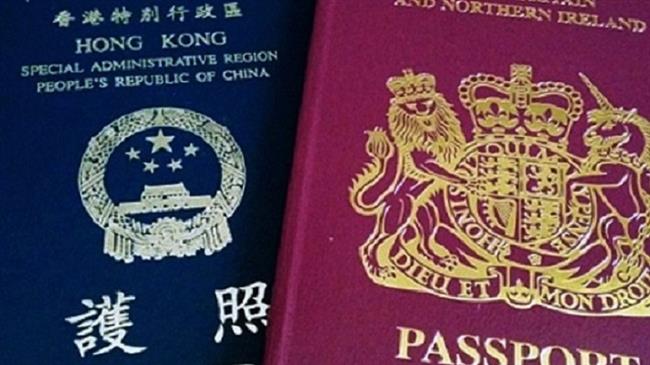Britain refuses to give full passports to its supporters in Hong Kong
As tensions rise in Hong Kong after months of protests and unrest, growing calls for the UK to grant the right of abode to citizens of its former colony have added a new twist to the unfolding drama.
Britain’s hardline approach to citizenship issues concerning Hong Kong residents has exposed a hypocritical edge to the UK’s policy towards China’s special administrative region.
According to the Financial Times, several hundred “protesters” mobilized outside the British consulate on September 01, demanding “full British” passports.
But the Financial Times’ headline that the UK risks “being pulled” into the Hong Kong “crisis” over the “citizenship row” is misleading as Britain enthusiastically dived into China’s internal affairs as soon as the protests began in earnest in June.
The background to this case stretches back to 1997, when just prior to Britain’s handover of Hong Kong to China, the UK granted British Nationals (Overseas) passports to three million Hong Kong residents.
Prior to this, and during the latter stages of Britain’s colonial rule, Hong Kong citizens held British Dependent Territories Citizens passports.
The current British Nationals (Overseas) passports, held by up to one million Hong Kong residents, does not grant right of abode in the UK.
The South China Morning Post, which is Hong Kong’s English-language newspaper of record, reported on July 24, 2018, that declassified British cabinet files reveal that in 1985 Britain applied “pressure” on Portugal not to grant nationality to its colonial residents in Macau.
Apparently British officials were fearful that ‘Hongkongers’ would demand the same right from their British colonial masters.
These revelations, coupled with Britain’s continuing refusal to grant full citizenship rights to pro-British elements in Hong Kong, are at odds with Britain’s persistent expressions of sympathy for the people of Hong Kong.
This hypocrisy gives weight to suspicions that Britain is more interested in using Hong Kong to pressure China than actually caring about the welfare of Hong Kong residents.
VIDEO | New Delhi chokes under toxic smog as air quality remains at hazardous levels
VIDEO | Press TV's news headlines
VIDEO | ICC's arrest warrant for Netanyahu to worry Western politicians: Former British diplomat
Iranians protest against Israel after Netanyahu ICC warrant
Germany undecided on complying with ICC arrest warrants for Israeli war criminals
VIDEO | Former FBI agent criticizes US Congress for 'outright corruption'
IRGC chief urges Muslim countries to cut aid routes to Israel
'New chapter in cooperation': Iran, Venezuela sign new MoUs










 This makes it easy to access the Press TV website
This makes it easy to access the Press TV website